Mac Phipps was a rising rap star. Did his lyrics put him behind bars for two decades?
As the stage lit up, a crowd of men dragged a tall, slender figure completely clad in a jumpsuit. The figure tussled with the men, quickly ripping off the suit and unveiling a man decked out in a camouflage outfit.
The audience, packed in every corner of New Orleans’ House of Blues, cheered.
Mac, No Limit’s Camouflage Assassin, finally returned to take center stage in his hometown. It was time to celebrate the 25th anniversary of his hit album “Shell Shocked.” He hadn’t performed the album in its entirety until that July night because, for 21 years, he had been behind bars an hour away from home.
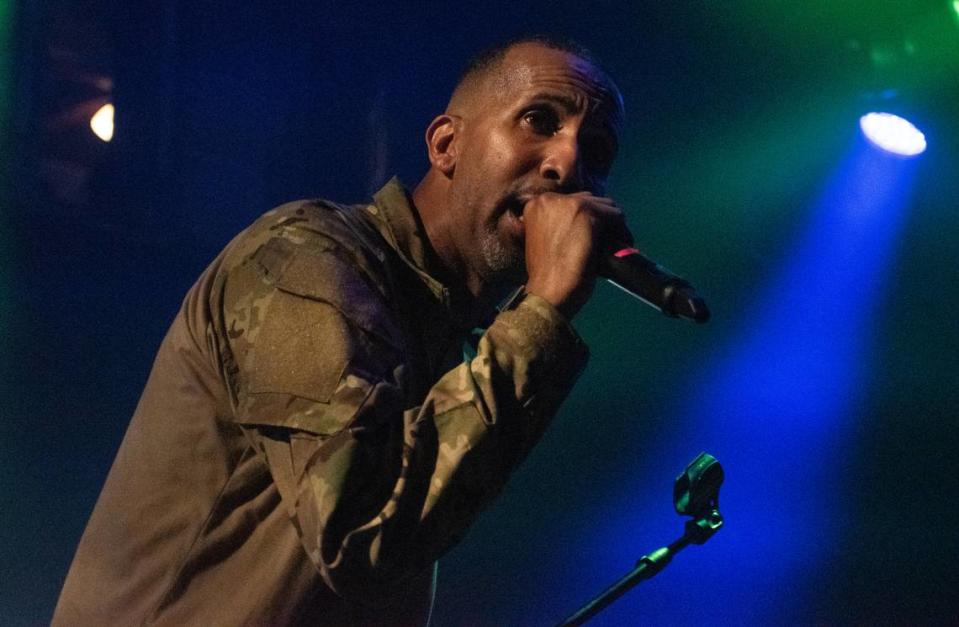
In 2000, Mac, whose real name is McKinley Phipps, was accused — and ultimately convicted — of shooting and killing a 19-year-old man at a nightclub in Slidell, Louisiana. He maintained his innocence then, and still does now.
Prosecutors utilized a powerful weapon that he says exploited an on-stage persona and secured his conviction.
His music.
Mac’s art played a key role in his trial. His lyrics were spliced, mashed up and misquoted by prosecutors, court records show. Prosecutors referenced one of his rap personalities, instructing the jury to “rip the camouflage from this assassin.”
That night on the New Orleans stage, he didn’t remove his camouflage. He wore it like a badge of honor.
“We’re going to get into the song that got me locked up,” he shouted at the animated audience.
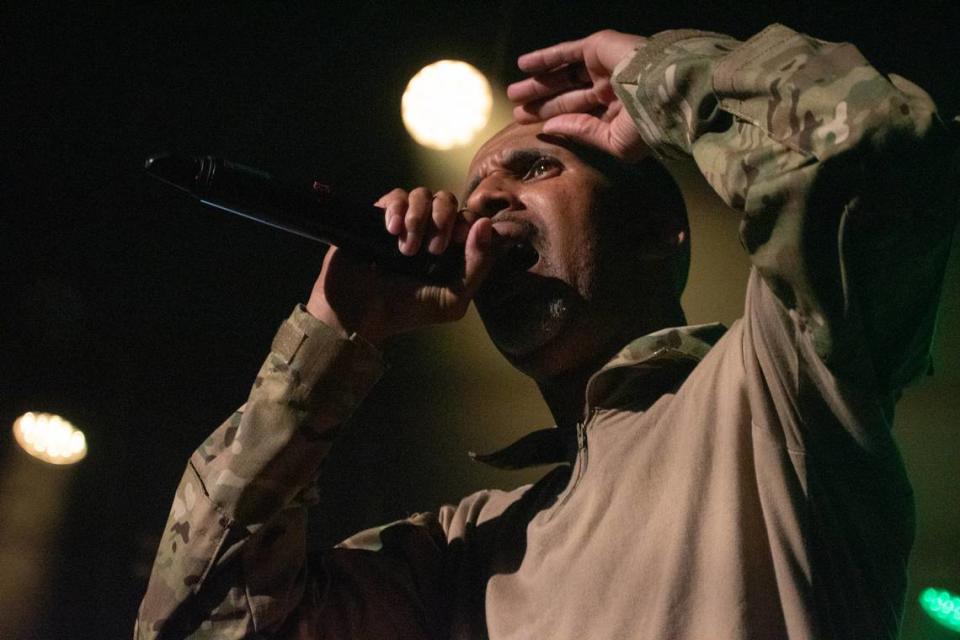
Soldier rag on my eye, soldier fit on my frame
The crowd bopped from the moment the beat dropped. Some in the audience shouted out lyrics. There was an air of anticipation for the lyrics to come.
Murder, murder, kill, kill
S--t’s real, on the battlefield
For experts and advocates, Mac’s story is an example of the high stakes rappers may face when their lyrics are used against them in court — and of pushing for a change in law to help protect others facing similar circumstances.
But that night on stage, Mac reclaimed his lyrics. His craft. His artistic expression that was weaponized against him in court decades prior.
In defense of rap
Music is at the heart of Mac’s identity. He was around 7 or 8 years old when, inspired by R&B group New Edition, he realized he could weave his love for poetry together with music.
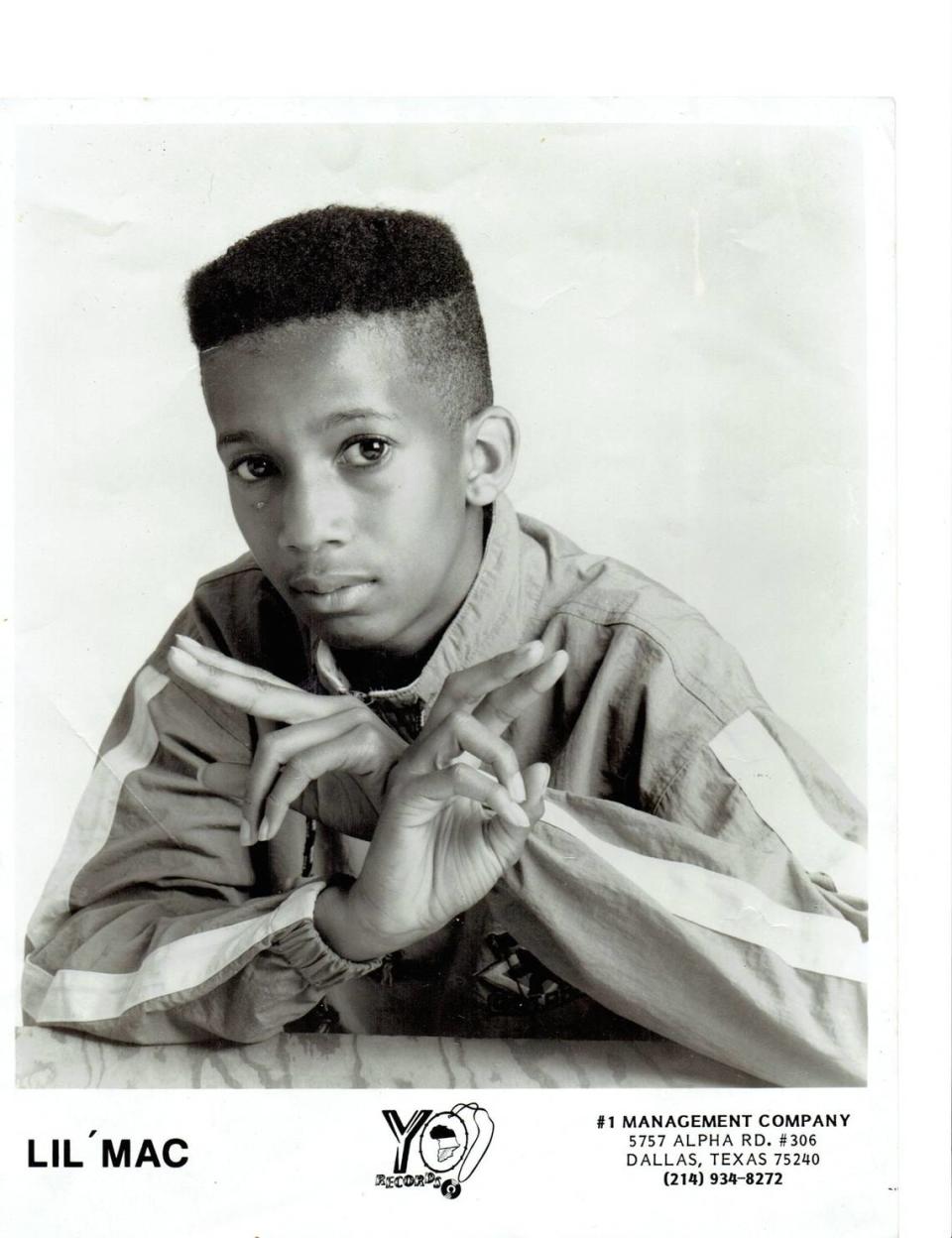
At 11, he won a rap contest and later joined a local hip-hop collective. Less than a decade into his career, he signed with Master P, a New Orleans native and the founder of No Limit Records, a California-based record label.
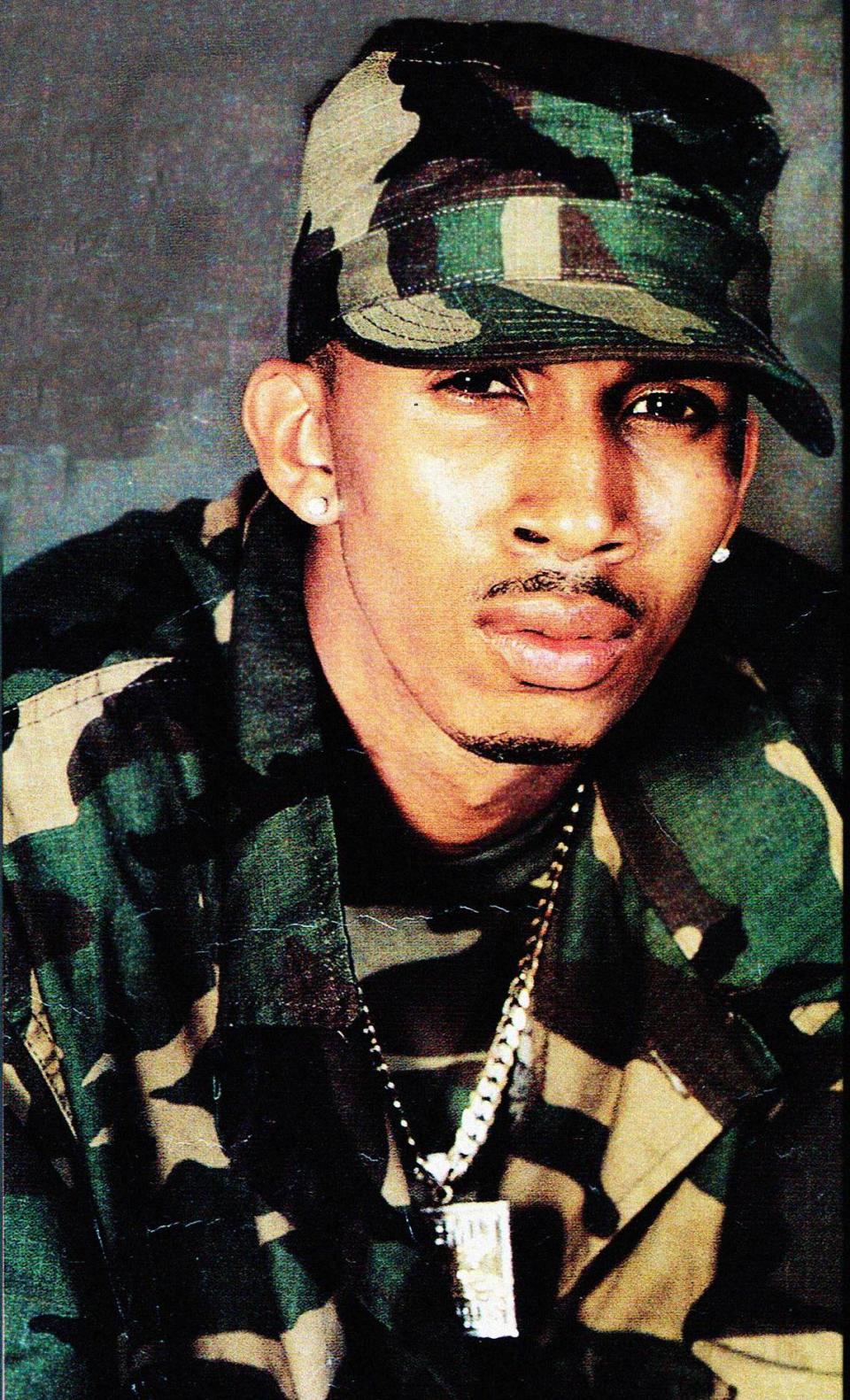
Following his conviction in 2001, Mac was sentenced to 30 years in prison. He was granted parole in 2021 after applying three times for clemency, which allows a governor to shorten a sentence.
After years behind bars on a conviction associated with his lyrics, he took a path to push for change. In 2023, the rapper helped pass the Restoring Artistic Protection Act, a Louisiana law that bars prosecutors from using lyrics as character evidence in trials.
Gov. John Bel Edwards, a Democrat, signed the bipartisan-supported bill into law in June. Mac and his wife, Angelique Phipps, who he credits with spearheading the effort, lobbied politicians for the legislation.

For Mac, the law is a significant feat in a state considered traditionally conservative. It covers all art forms, not just hip-hop. Young musicians, he says, should learn about how their music could be used against them, but they shouldn’t have to self-censor out of fear.
“I don’t want them to have to,” he said. “That’s why I’m fighting so hard to get this bill passed on a federal level and around the country.”
A night in Louisiana
In February 2000, Mac was set to headline at a club in Slidell, a city on the outskirts of New Orleans, when a fight among a group of men erupted into gunfire. Mac, 22, was on a path to stardom beyond his humble Louisiana roots.
Police were looking to question Mac in connection to the shooting. At the time, he never considered the possibility of being arrested.
“Of course they’re gonna question me,” he said, recounting his thoughts at the time. “My poster is on the wall of this place.”
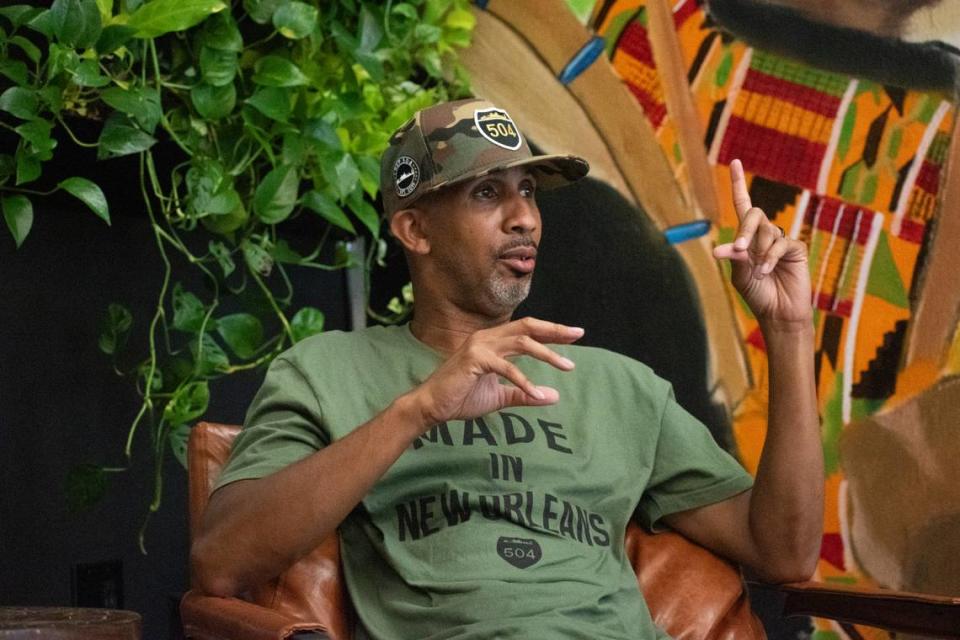
Mac, who didn’t have a criminal record, entered the interrogation room unfazed. But he quickly began to worry. He had a gun on him at the club, and he wasn’t licensed to carry it. Hoping to dodge a gun charge, he lied and said it was in his car at the time of the shooting.
That’s when detectives informed him that the investigation had shifted to a homicide.
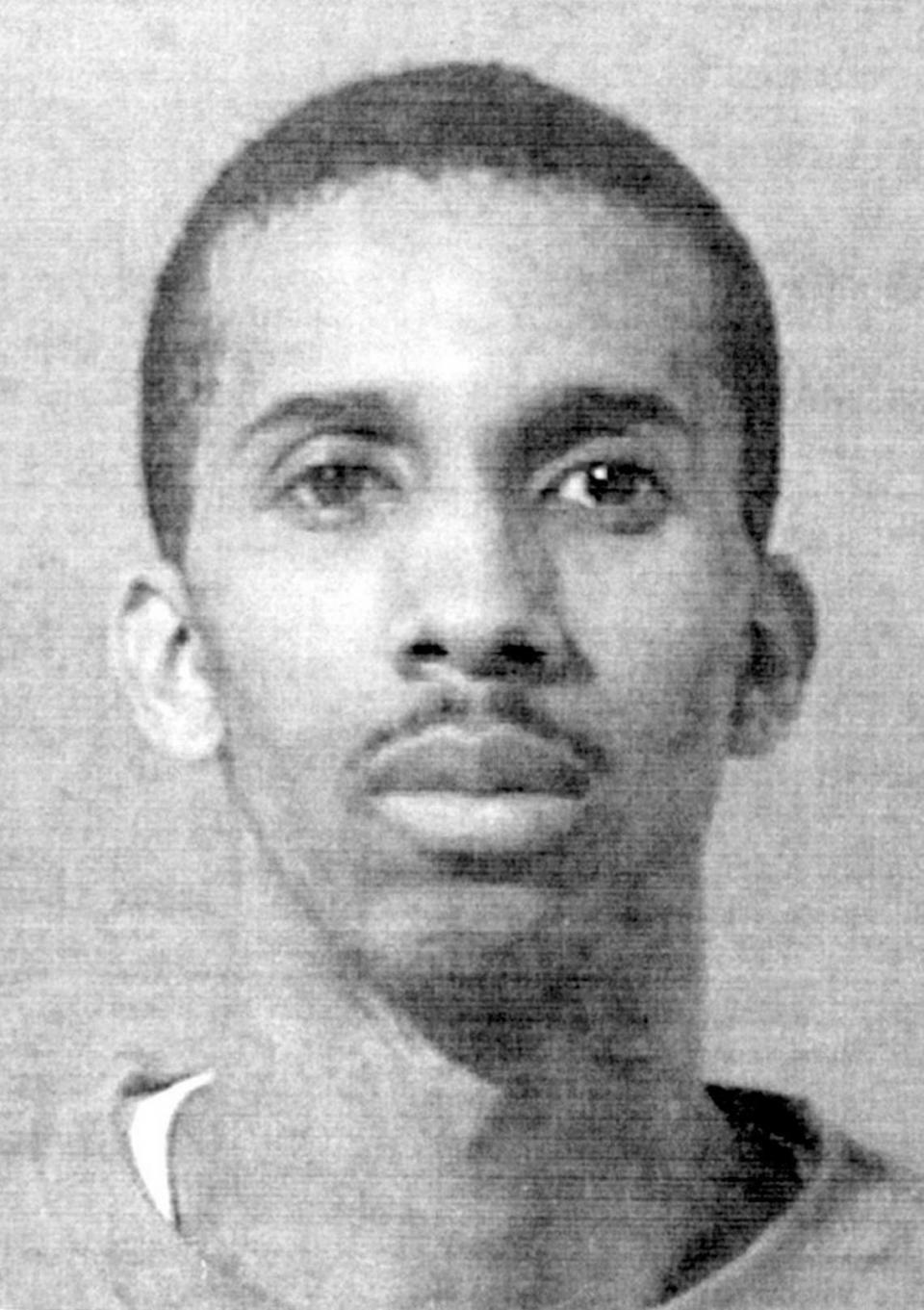
Sitting in jail on a murder charge, Mac met a fellow inmate who he said told him detectives tried to coerce him into implicating the rapper. The man, who was a cousin of the victim, signed a sworn statement in 2013 doubling down on the allegation that he was threatened by investigators.
Other witnesses shared a similar account years later. In 2015, a journalist with the Huffington Post reignited attention on Mac’s case when he uncovered that five state witnesses were “bullied” by prosecutors and police officers to identify Mac as the gunman.
“I realized that this was bigger than just me,” Mac said. “I [had] just become a symbol for them to basically show the people of New Orleans.”
McKinley or Mac?
Mac said he never believed a jury would be able to find him guilty of murder, even the all-white jury before him in St. Tammany Parish, an area he described as “well-known and documented to be real racist.”
He remembers sitting next to his attorney when a prosecutor waved a folder filled with lyrics from his albums. The prosecutor acted as if they were his smoking gun.
“You’re honing in on something I said on a song? You’re done,” Mac said he thought at the time. “In my mind, I was like: ‘That’ll never fly.’”
When Mac’s music made it before the jury in 2001, the prosecutor quoted lines from songs. The lyrics, the prosecutor argued, weren’t evidence of the murder. Their purpose was to expose Mac’s character.
Mac “the Camouflage Assassin” — his artistic persona — was being equated with McKinley Phipps.
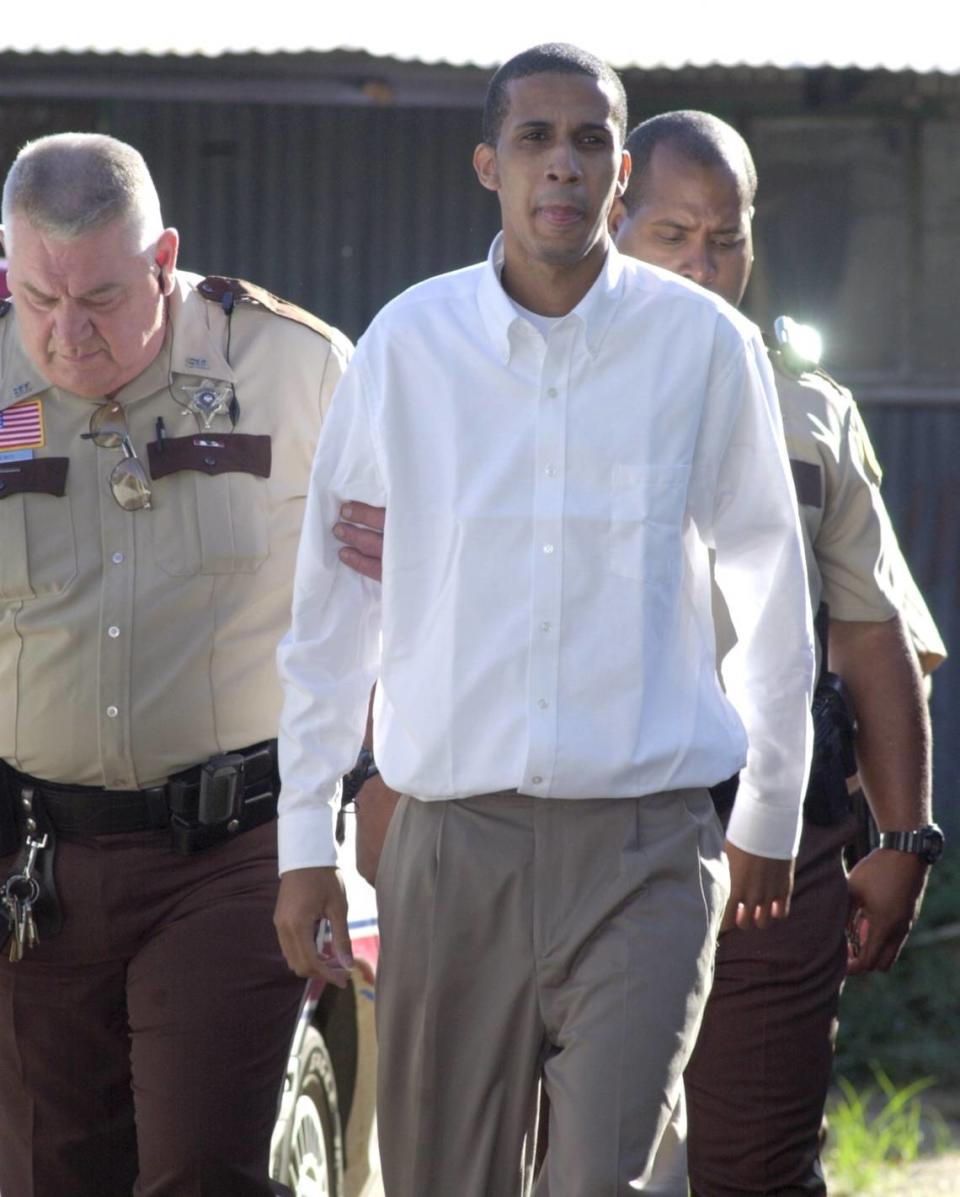
“He was trying to establish to the jury because I have these types of songs, it’s a reflection of who I am as a person,” he said.
The prosecutor mixed and matched lyrics from two separate songs, court records show. Some were from the chorus of “Murder, Murder, Kill, Kill” and the other from “Shell Shocked,” an ode to his father, who served in the military.
“Murder murder, kill kill, you F with me you get a bullet in your brain,” the prosecutor said, according to court records.
In the actual lyrics, “Murder, Murder, Kill, Kill,” is followed by “S--t’s real on the battlefield.” The second set of lyrics in the mash-up were pulled from “Shell Shocked.” They go like this: “Gave me his name, gave me the game, gave me them things and if you f--- with me he’ll give you a bullet in your brain.”
“In a very nefarious way, it was clever,” Mac said. “Because he knew that this audience couldn’t tell the difference.”
Mac’s stomach dropped when the jury returned the verdict: guilty of manslaughter in a 10-2 vote. At the time, Louisiana was one of two states in the country that allowed a non-unanimous jury to convict a defendant.
He lowered his head on the table and sobbed.
“It was like everything I had been holding in all came out,” he said. “All the way up until my guilty verdict, I thought that I was going home. I did not believe that prosecutors had enough evidence...”
Almost 15 years after the verdict, the jury foreman told the Huffington Post that the rapper’s lyrics — and his persona as a “gangsta” who made it “big time with the gold chains and all that s--t that went with it” — influenced their decision-making.
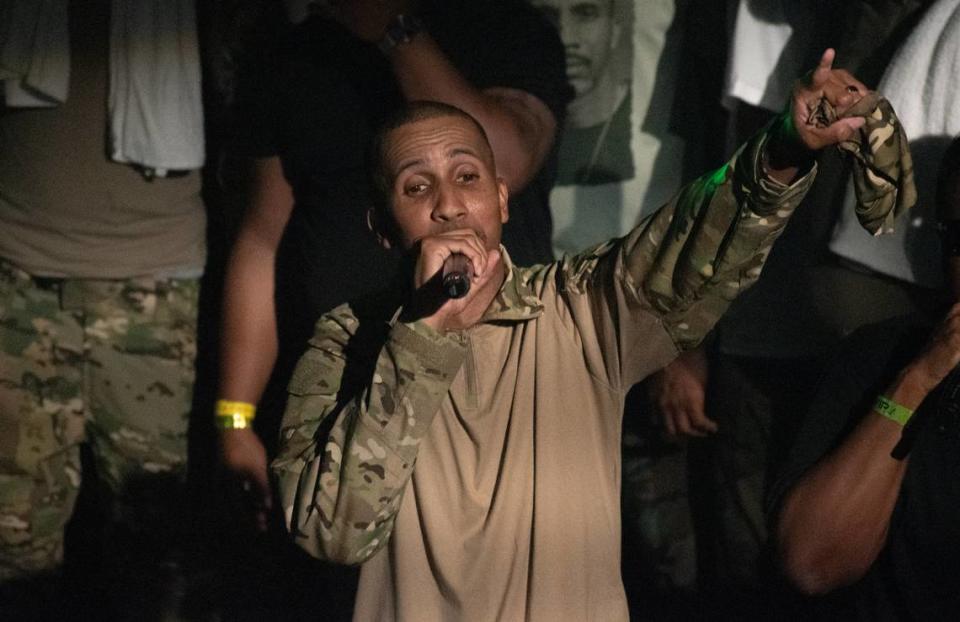
Prosecutors quoting rap lyrics can elicit negative biases in jurors, especially those who aren’t familiar with the genre, said Clay Calvert, a professor of law at the University of Florida.
“Rap music plays to hyperbole and rhetoric and fantasy. Rappers take on personas. They boast, they toast,” Calvert said. “All of that is not meant to be taken literally.”
Fight for freedom
For two years, Mac has been a free man. He continues releasing new music and performing, but the rapper is more of an activist today.
He has taken a proactive role speaking out in documentaries, academic forums and projects with civil rights groups such as the ACLU.
His early release from prison didn’t mean that the state recognized him as innocent. And that’s something that he says weighs on him after spending two decades behind bars.
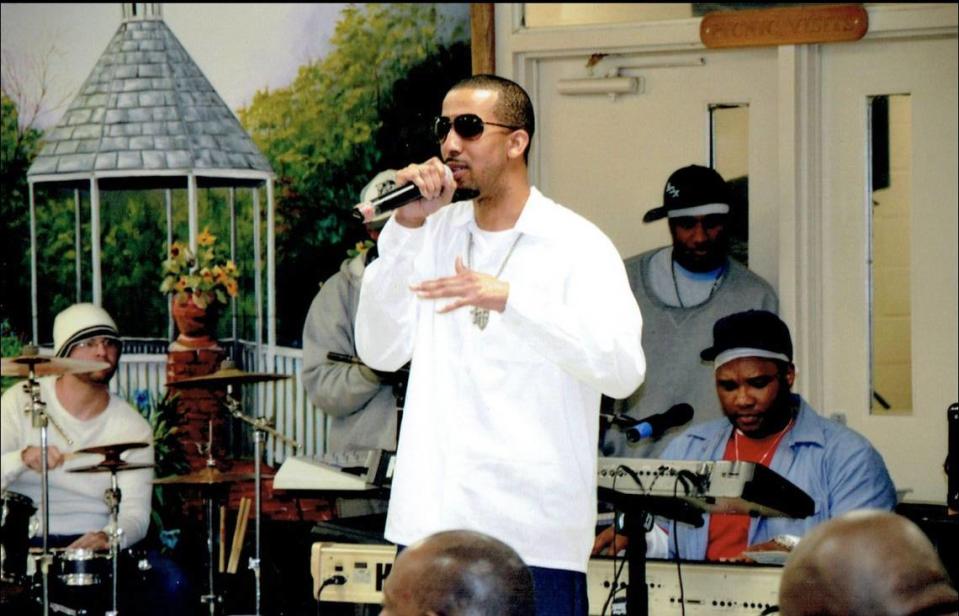
“There’s a part of me that honestly wants to prove my innocence,” he said. “I often ask myself, do you want to put yourself through that again?”
But Mac said he’s using his story to serve as a catalyst for transformation — and one of his first wins was the change in law in Louisiana.
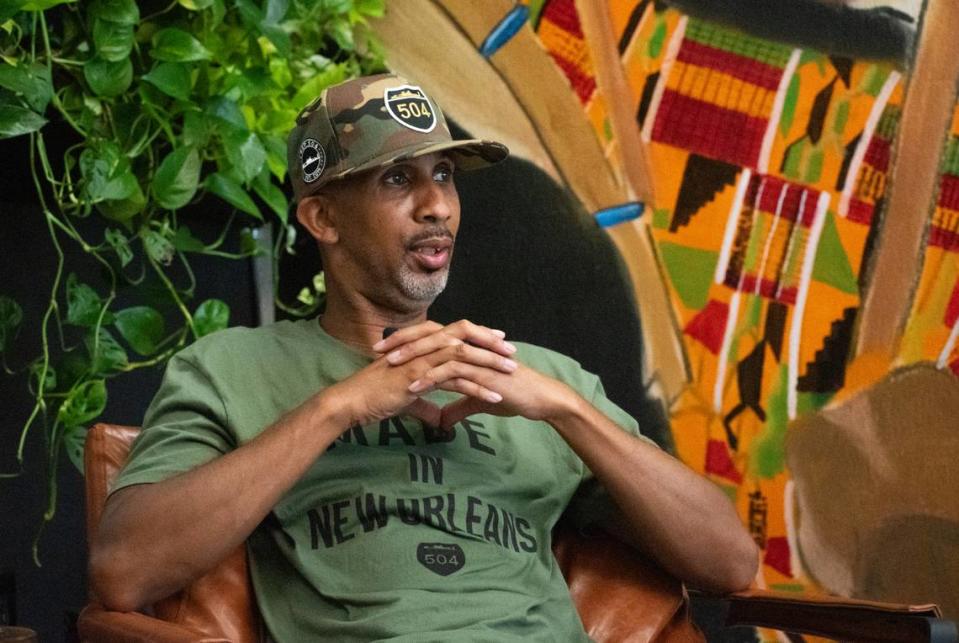
”People connected with my story,” he said. “This was ultimately about freedom of expression and the ability to create art without having that art used.”

